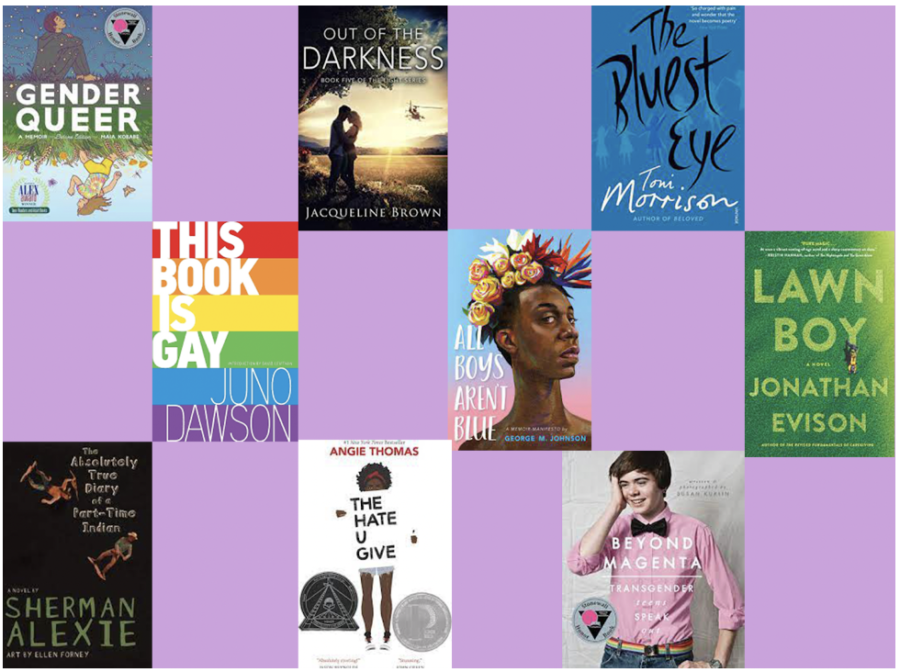Book Banning; Censorship is Not the Solution
An infographic of some of the top banned and challenged books.
Throughout the years, many books have been challenged by government officials. Most commonly, these books are banned from schools & public libraries but are occasionally banned from distribution entirely.
For example, last year in Virginia the books “A Court of Mist and Fury” and “Genderqueer” were challenged to be banned from being sold to minors. The argument for the challenge was that the books had broken the state’s obscenity laws, meaning they should not be sold to people under 16. It was later found in court that no obscenity laws had been broken, and the challenge was dismissed.
Book banning has been around for as long as print. Ideas are dangerous, and when put on paper can be circulated more efficiently. People who disagree with these ideas, however, fear that, and that results in the banning & challenging of books.
However, book banning is less effective than these people may hope.
Caroline Stine, general manager at Blue Marble Books in Fort Thomas, explained that banning books increases the demand for them using the example “Maus”.
“When Maus was banned, we had people for two to four weeks after that coming in daily asking for it.”
What had originated as an attempt to stop students from reading it, resulted in the sale of almost 15 copies of the book at Blue Marble alone.
Jason Gay, the Media specialist at HHS, added to this.
“It’s 2023”, he said, “Anything you can’t buy on paper, you can access on an iPhone.”
In this digital age, it is almost impossible to stop people from sharing their opinions.
Both Stine and English teacher Angie Gintonio spoke up about when book censorship seemed to go a little too far. In 1987, Where’s Waldo? was banned because one sunbather was topless in the beach scene.
In addition to this, in Texas Prisons, Where’s Waldo? Santa Spectacular was banned, but books such as Mein Kampf (Hitler’s autobiography) and many books written by David Duke of the KKK were free for prisoners to read.
Recently, there has been a surge in books by LGBTQIA+/BIPOC authors or about LGBTQIA+/BIPOC characters being banned.
English teacher Jennifer Nash emphasized why it is so important that these books are available to readers.
Quoting famous author C.S. Lewis, she said, “We read to know that we are not alone.”
Many readers enjoy reading about characters and things they can relate to, but as these books get banned, that character becomes harder to find.
The banning of books is an issue that has not been publicized enough. Celebrate the right to read, and pick up a banned book.
Your donation will support the student journalists of Highlands High School. Your contribution will allow us to cover our annual website hosting costs.



